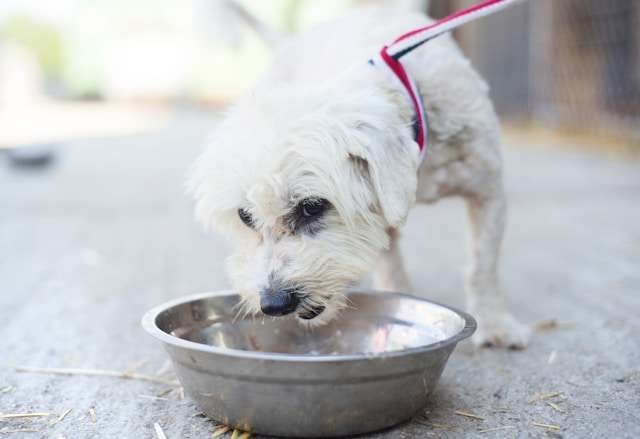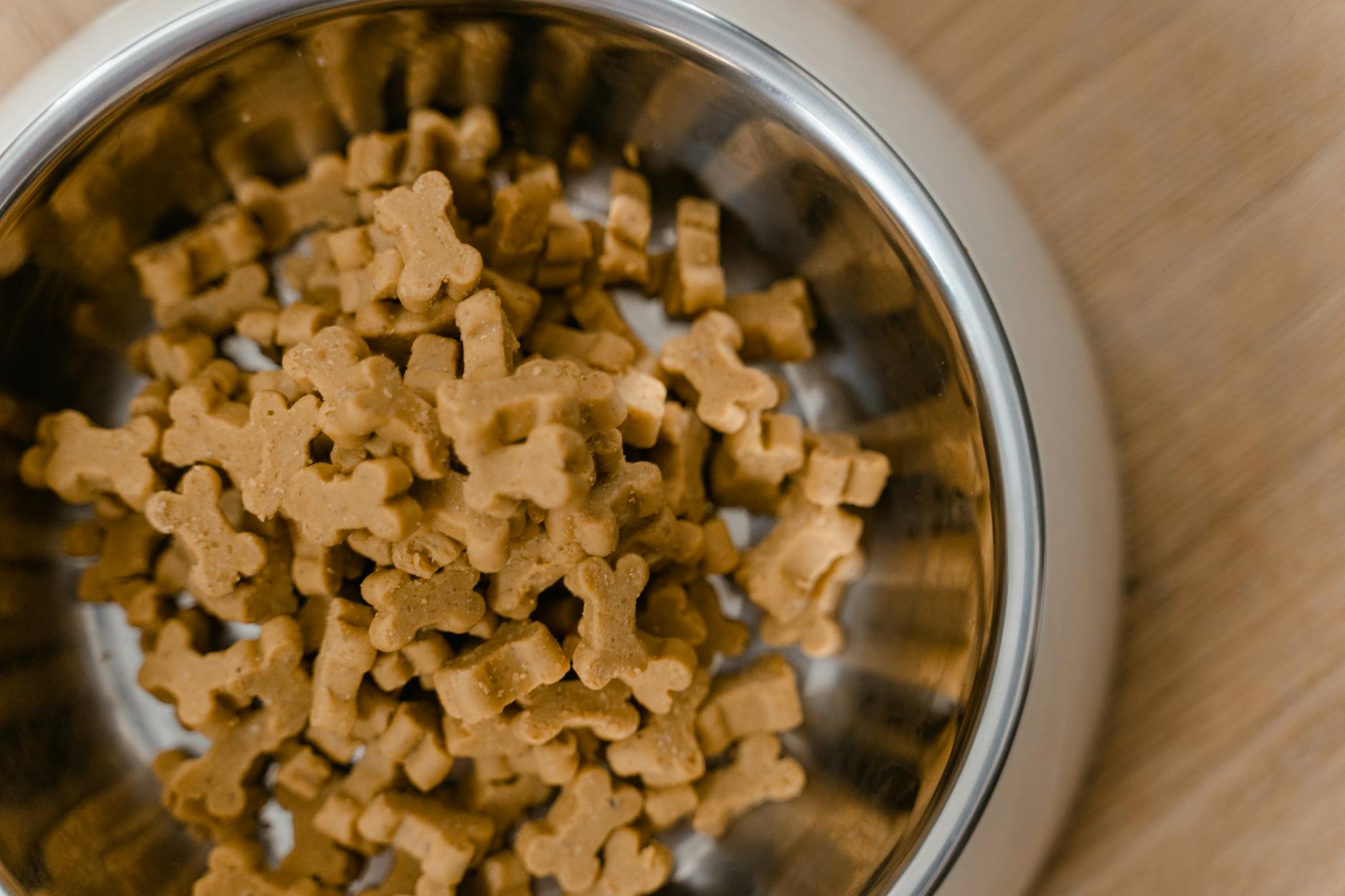Best Dog Food for Every Breed: Tailored Nutrition for Your Pup’s Health

Choosing the right food for your dog isn’t just about filling their bowl—it’s about supporting their health. Different breeds have unique dietary needs shaped by their size, energy levels, and genetic predispositions. Whether raising a high-energy Border Collie or a small but mighty Dachshund, tailored nutrition can make all the difference. This guide will explore the best options for keeping your dog healthy and thriving, regardless of breed.
Table of Contents
Understanding Nutritional Needs of Different Breeds
Dogs come in all shapes and sizes, and so do their nutritional requirements. Feeding your dog based on their breed isn’t just about size; it’s about offering them the right balance of nutrients to support their unique physiology. Below, we break down the dietary needs specific to small, medium, large, and giant breeds.
Small Breeds

Photo by MART PRODUCTION
Small dogs may look delicate, but their energy needs are surprisingly high. These little dynamos burn through calories quickly due to fast metabolisms, making calorie-dense foods a must. A nutrient-packed diet ensures they get the energy they need without overloading their tiny stomachs.
- Frequent Meals: Small dogs do better with multiple small meals daily to maintain their energy levels.
- High Metabolic Support: Food needs to be rich in digestible proteins and healthy fats.
- Nutritional Density: Every bite matters, so pick high-quality kibble explicitly designed for their size.
For more tips on small breed nutrition, check the guide on nutritional considerations for toy and small dogs.
Medium Breeds
Medium breeds require a balance between energy and nutrient density. Their dietary needs aren’t as extreme as smaller or larger breeds, but they still need tailored care to stay healthy and active.
- Protein Ratios: Medium dogs thrive on enough protein to maintain muscle mass without excess calories.
- Energy Levels: Active medium breeds may need higher fat content for sustained energy.
- Portion Control: Moderation is key to avoid weight issues, especially for spayed or neutered dogs.
Learn more about balanced nutrition for medium breeds in this nutrition guide for medium dogs.
Large Breeds
Big dogs have significant responsibilities, particularly when it comes to their diet. Large breeds are prone to joint issues so that proper nutrition can play a preventative role.
- Joint Support: Look for foods with added glucosamine and chondroitin.
- Calorie Monitoring: While their size demands more calories overall, large dogs don’t burn through them as quickly as small breeds so that overfeeding can cause obesity.
- Bone Health: Balanced calcium and phosphorus levels help maintain strong bones and prevent growth problems in puppies.
For detailed insights, check out nutritional considerations for large dogs.
Giant Breeds
Giant breeds like Great Danes or Mastiffs must have diets that support slow and steady growth. Too much, too fast, can lead to health complications as they age.
- Controlled Growth: Foods that are lower in calcium and calories help avoid rapid growth patterns.
- Joint Focus: Joint health supplements are crucial at every life stage.
- Energy Balance: Though they consume a lot of food overall, their metabolism is slower, necessitating careful calorie management.
Discover more on how to keep giant breeds healthy at all stages here.
By tailoring your dog’s food to their breed, you’re meeting their nutritional needs and giving them the best chance at a long, healthy life.
Top Dog Food Brands for Specific Breeds
Selecting the right food for your dog involves more than picking any high-quality product. Different breeds thrive on diets tailored to their unique needs, from maintaining energy levels to addressing joint health or skin concerns. Let’s explore the best food options for some popular breeds.
Best Dog Food for Labrador Retrievers

Photo by Cottonbro Studio
Labradors are active and intelligent but notorious for gaining weight quickly. A diet that supports their activity and keeps their weight in check is essential.
- Key Ingredients to Look For: High protein, moderate fat, and fiber-rich formulations to curb hunger between meals.
- Recommended Brands: Many owners of Labradors swear by Wellness Core Large Breed Adult, known for its balance of lean proteins and joint supplements like glucosamine. Royal Canin Labrador Retriever Adult is another breed-specific option to prevent unnecessary weight gain.
Check out the complete list of expert-recommended foods here.
Best Dog Food for Beagles
Beagles are high-energy dogs with a penchant for overeating. A balanced diet keeps their energy levels up while preventing obesity.
- Key Ingredients to Look For: Wholesome proteins, moderate fats, and low-calorie options to avoid overfeeding.
- Top Choices: Open Farm Grain-Free Small Breed is highly rated, offering nutrient-dense kibble. The Farmer’s Dog Chicken Recipe is another excellent pick, boasting fresh ingredients and easy digestibility.
Discover more dietary ideas for this breed here.
Best Dog Food for Poodles
Poodles are known for their iconic curly coats and sensitive skin, making skin and coat health a top priority in their diet.
- Key Ingredients to Look For: Foods rich in omega-3 and six fatty acids, plus ingredients like biotin to promote a shiny coat.
- Recommended Brands: Royal Canin Poodle Adult delivers precise nutrition for curly coats and sensitive skin. Hill’s Science Diet Skin/Coat Formula is another excellent option, enhancing skin health with key nutrients.
Explore the best food brands customized for Poodles here.
- Key Ingredients to Look For: Moderated fat levels, natural anti-inflammatory properties, and easily digestible proteins.
- Top Recommendations: Owners often choose the Royal Canin Bulldog Formula, which promotes digestion and reduces flatulence. Another popular pick is Purina Pro Plan Sensitive Skin & Stomach, designed with ingredients like salmon for sensitive systems.
Best Dog Food for Bulldogs
Bulldogs often face specific challenges, including weight management and respiratory health, which their diet can influence.
- Key Ingredients to Look For: Moderated fat levels, natural anti-inflammatory properties, and easily digestible proteins.
- Top Recommendations: Owners often choose the Royal Canin Bulldog Formula, which promotes digestion and reduces flatulence. Another popular pick is Purina Pro Plan Sensitive Skin & Stomach, designed with ingredients like salmon for sensitive systems.
Bulldogs often face specific challenges, including weight management and respiratory health, which their diet can influence.
Get more insights into Bulldog-friendly foods here.
Best Dog Food for German Shepherds
German Shepherds excel athletically and require diets to maintain their muscles and protect vulnerable joints.
- Key Ingredients to Look For: Glucosamine for joint support, high protein for muscle maintenance, and probiotics for digestion.
- Recommended Brands: Royal Canin German Shepherd Puppy supports puppy growth and digestion. Nom Nom Beef Mash provides fresh, customizable meals packed with nutrients for adults.
Learn more about German Shepherd-specific nutrition here.
You can help your furry friend live their healthiest, happiest life by providing breed-specific nutrition. Each breed has distinct dietary needs, and the right food can make all the difference in their energy, health, and quality of life.
Homemade and Raw Diet Options
When tailoring your dog’s diet, homemade and raw food options have gained significant attention. While these approaches encourage customization, they also require careful consideration to ensure balanced nutrition for your dog.
Benefits of Homemade Diets
Homemade diets allow you to control the ingredients your dog consumes entirely. For many pet owners, this level of customization delivers peace of mind and tangible health benefits. Here are some reasons why this approach might work for your dog:
- Ingredient Control: Avoid fillers, preservatives, and allergens in commercial foods. This is especially helpful for dogs with food sensitivities or allergies.
- Customization: Homemade meals can be tailored to suit your dog’s specific needs—whether it’s a low-fat diet for a senior dog or extra protein for an active breed. You’re addressing their exact requirements.
- Freshness Guaranteed: Your dog’s food is as fresh as what you serve yourself. This reduces the risk of spoilage or contamination.
- Boosted Palatability: Home-cooked meals often taste better for dogs. Picky eaters are more likely to enjoy what’s in their bowl.
Before starting a homemade diet, it’s essential to consult with a veterinarian or a canine nutritionist to ensure your dog is receiving all necessary nutrients. For more tips on cooking for your furry friend, check out the AKC’s guide on homemade dog food.
Raw Diet Considerations
Raw diets often appeal to pet owners who want a “back-to-nature” approach for their dogs. These diets typically include raw meats, bones, fruits, and vegetables. However, while raw diets have potential benefits, they also come with risks.
Potential Benefits:
- Improved Coat and Skin: Many raw feeders report shinier coats and healthier skin in their pets.
- Enhanced Digestion: A raw diet may decrease stool volume due to the absence of fillers and processed ingredients.
- Increased Energy: Dogs on raw diets often exhibit higher energy levels, possibly due to nutrient-dense food sources.
Potential Risks:
- Bacterial Contamination: Raw foods, including meat and poultry, can carry harmful bacteria like Salmonella and E. coli, which can endanger dogs and humans.
- Unbalanced Nutrition: Without proper planning, raw diets can lead to deficiencies or excesses in key nutrients, resulting in potential health problems.
- Choking Hazards: Bones, a staple in many raw diets, may splinter and pose choking risks or cause gastrointestinal blockages.
If you’re considering a raw diet, researching and working closely with a vet is crucial. Learn more about the pros and cons of raw feeding from this WebMD article on raw dog food.

Photo by Tibor Szabo
Choosing between homemade and raw diets ultimately depends on your dog’s unique needs and your ability to commit to proper preparation.
Consulting with a Veterinarian
When choosing the best food for your dog’s breed, consulting with a veterinarian is essential. They can guide you through understanding your dog’s unique health needs and how their diet impacts overall well-being. Here’s why working with a vet is invaluable when tailoring your dog’s nutrition.
Understanding Allergies and Sensitivities
Some breeds are more prone to food allergies and sensitivities than others. This can make choosing the right dog food a challenge. Allergies often manifest in symptoms like skin irritations, gastrointestinal upset, or chronic ear infections. A veterinarian can identify whether your dog has breed-specific sensitivities or broader food intolerances.
Breeds like Golden Retrievers or Bulldogs, for instance, are more likely to experience allergies related to grains or specific protein sources such as chicken or beef. Your vet may recommend a novel protein diet that uses less common proteins like duck, venison, fish, or even hypoallergenic formulas to alleviate allergic reactions.
- Signs of Food Allergies: Excessive scratching, vomiting, diarrhea, or inflammation. If you notice any of these signs, it’s time to seek professional advice.
- Treatment Plans: A vet-guided elimination diet is a common approach, gradually introducing new foods to identify the allergen.
For more insights and guidance on this topic, check Food Allergy: Diagnostics & Therapeutic Food Options or How to Diagnose and Handle Dog-Food Allergies. Both are excellent resources vetted by experts.

Photo by Tima Miroshnichenko
Monitoring Your Dog’s Health
Diet plays a significant role in maintaining your dog’s health—and monitoring the effectiveness of their diet is just as important. Regularly checking your dog’s weight, coat condition, and energy levels can reveal if their food meets their nutritional needs.
- Weight Tracking: Weigh your dog monthly to ensure they stay within their healthy range. Overweight breeds like Labradors often need stricter calorie control.
- Coat and Skin: A shiny, full coat is usually the result of a good diet. Dry and flaky skin can indicate nutritional gaps or food sensitivities.
- Energy Levels: If your dog seems overly tired or hyperactive, it could signal an imbalance in their diet.
Tools like activity monitors or food journals can also help track long-term health trends. Check Tracking Your Dog’s Diet – A Guide for Responsible Breeders or Activity and Health Monitors for Dogs to learn more.
By staying vigilant and consulting a vet regularly, you can fine-tune your dog’s diet to support their health and happiness better. Each breed has unique dietary requirements; vets are your best resource for understanding and meeting those needs.
Conclusion
Feeding your dog based on their breed is one of the simplest ways to support their health and happiness. From energy-packed diets for small breeds to joint-supporting formulas for larger dogs, choosing the right food ensures they get exactly what they need.
Each breed is unique, and their diet should reflect that. Always read labels, research trusted brands, and consult your vet to make informed choices.
Your dog’s health starts with what’s in their bowl—make every meal count. What changes can you make to suit your dog’s needs better? Let us know in the comments!
FAQ: Best Dog Food for Every Breed
What’s the best type of dog food—wet or dry?
Both have pros. Wet is hydrating and palatable; dry supports dental health and is more convenient. Choose based on your dog’s needs and preferences.
Are breed-specific dog foods better?
There’s limited evidence they’re superior to general high-quality diets. Focus on nutrition, not just the label.
Can small dogs eat the same food as large breeds?
Not always. Small dogs may need calorie-dense food, while large breeds need joint-support formulas.
How do I know if my dog’s food is nutritious?
Look for AAFCO approval, list real protein first, and avoid fillers like corn or by-products.
Should I avoid grain in my dog’s diet?
Unless your dog has a grain allergy, grains like rice and oats are fine. Grain-free isn’t inherently better.
Is homemade dog food a good option?
It can work but requires vet guidance to ensure balanced nutrients. Deficiencies are a common risk.
Does a puppy need food that is different from that of an adult dog?
Yes. Puppy formulas offer extra calories and nutrients for growth that adult formulas lack.
Can senior dogs eat regular adult dog food?
Senior dogs benefit from lower-calorie options with joint support ingredients like glucosamine.
How often should I switch up my dog’s food?
Frequent changes aren’t needed unless there’s a dietary issue. Always transition gradually.
What’s the best protein source for dogs?
Chicken, beef, fish, and lamb are ordinary. Pick one your dog tolerates well; variety can help, too.
How do I handle a picky eater?
Warm the food or mix dry and wet food for variety. Avoid frequent handouts, which can spoil appetites.
Should I feed my dog human food?
Only safe and vet-approved options like plain chicken or carrots. Avoid toxic foods like chocolate, onions, and grapes.
How much should I feed my dog daily?
Check the packaging feeding guide and adjust it based on your dog’s weight, age, and activity level.
Does my dog need supplements?
Not if the food is balanced. Excess supplements could harm. Ask your vet before adding any.
What brands are highly rated for dog nutrition?
Top picks often include Hill’s Science Diet, Purina Pro Plan, Wellness, and Royal Canin. Research and try what suits your dog’s needs.
How do I monitor if my dog’s diet is working?
Look for healthy weight, energy levels, shiny fur, and regular bathroom habits. Adjust if needed.







4 Comments